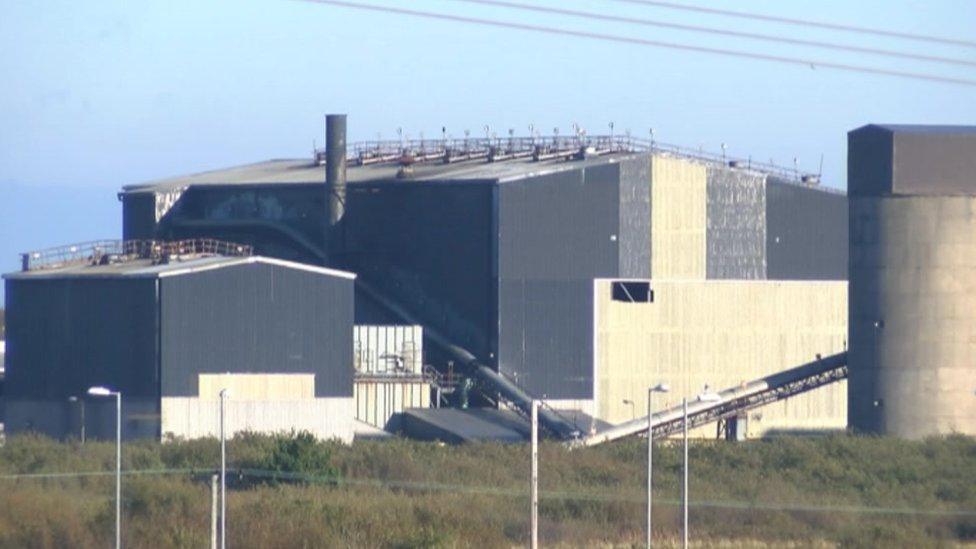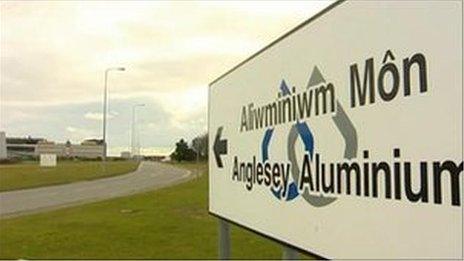Anglesey £1bn site to house modern slaves, not refugees
- Published

The former Anglesey Aluminium site
Victims of modern slavery are set to be housed at a £1bn Anglesey eco park, but the site will not be used for refugees.
The council's chief executive Dr Gwynne Jones said there had been "a great deal of misinformation" about plans.
Orthios hopes to create more than 1,700 jobs with a combined biomass plant and eco park at the former Anglesey Aluminium site near Holyhead.
It will give a charity a small part of a building rent free to house modern slavery victims.
Orthios Eco Park's chief executive Sean McCormick gave an update to members of Anglesey county and Holyhead town councils - saying work on the site will begin in the summer.
He said the company would act as landlord to the north Wales anti-human trafficking project as part of its aim to be a socially responsible community partner.
'Misinformation'
The site will be used to house a small number of modern slavery victims for a couple of days before they are moved elsewhere.
However, he stressed the new centre would not be used as a secure area to house refugees.
Anglesey council granted permission for the former medical building to be used by the north Wales anti-human trafficking project.
It said since October 2015, 12 victims of human trafficking have entered the national referral scheme from north Wales - seven from Anglesey and Gwynedd.
Dr Jones said: "There has certainly been a great deal of misinformation locally and in hindsight both Orthios and the county council should have engaged with the local community and residents before the planning application for change of use of the building was submitted.
"I'm pleased that the company has now met with local representatives and explained its plans in more detail."
- Published4 May 2016

- Published29 January 2016

- Published10 April 2014
